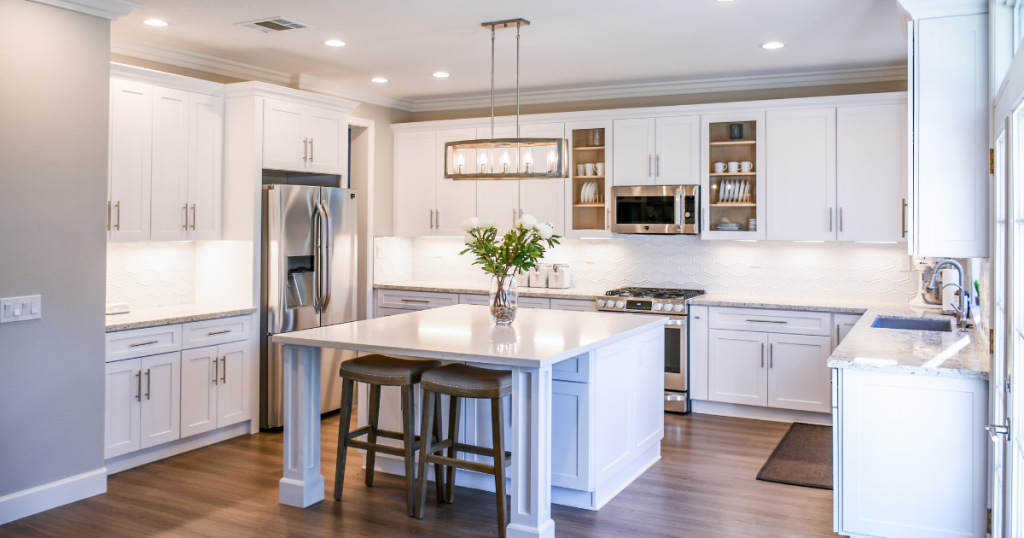
How can I add value to a property?
Whether you’re working your way up the property ladder or building your own home renovation business, knowing exactly what people are looking for when buying a house will help boost your profits and streamline your workload significantly.
Below, we’ve highlighted a few of the key considerations that can help raise the value of a home and make it more appealing to potential buyers.
Clean and declutter
It’ll come as no surprise that a clean property is far more likely to make a good first impression. Most cleaning can be carried out yourself, such as washing down paintwork and cleaning windows, though if your carpets and curtains need the attention, it’s well worth spending a bit of money on getting a professional in or hiring the correct equipment.
Fresh paintwork and clear decluttered space can create a blank canvas and make it seem bigger to anyone coming in for viewings, which will help them build a better picture of how it’ll look once they’ve put their own stamp on things.
Likewise, ensure all decorating is completed before going to market. Wallpaper should be neat and not look dated, paintwork should be touched up and fresh, and damaged tiles repaired or replaced if needed.
Conversions and extensions
Maximising space is an incredibly effective way to add value to a home. According to PropertyAdvice transforming a cellar into a living or storage area can boost property value by up to 30%, while converting a loft into an extra bedroom can add an extra 15%.
A conservatory will generally always add more value than it costs to build, too, making it a worthwhile consideration should you have the space and budget. Extra bathrooms, particularly en-suites are also a big selling point.
Update central heating
At a time of skyrocketing bills, energy efficiency is a huge consideration when buying a new home, so ensuring your central heating is up to date is more important than ever, particularly in older homes with dated systems.
Green technology like thermostatic radiator valves (TRVs) are another proven way to save on heating bills and will be looked on favourably by potential buyers.
Rewiring and replumbing
The last thing you want is a survey revealing faults with the property, so rewiring old electrics is often worthwhile. It’s best to do this before carrying out any aesthetic work, and you can use it as an opportunity to update the home’s lighting.
Similarly, dated plumbing systems will be a huge put-off for buyers as they can have a major impact on a home’s efficiency, and are more susceptible to burst pipes.
Go neutral
While it might be tempting to carry out any improvements according to your own taste, it’s important to remember that such an aesthetic might not be to everyone’s liking. With that being said, it’s generally best to keep colours and design neutral so as to appeal to as wide an audience as possible. Bathrooms and kitchens are costly areas to refurbish, so newly-fitted cabinets and clean, light decorations will appeal to many.
Obviously, the more work you can carry out yourself the more money you can save, and the less reliant you become on tradespeople with often lengthy backlogs of work. The Able Skills Property Development Course covers a range of the most common skills needed for home refurbishments and is a great investment for anyone wanting to work their way up the property ladder.